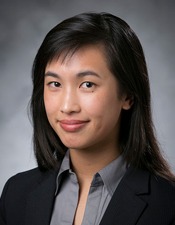Program Information
Making the Match: Selection Factors in the Medical Physics Residency Match
T Juang1*, A Rodrigues2 , S Vimolchalao3 , J Burmeister4 , K Hendrickson3 , (1) Stanford Cancer Center, Stanford, CA, (2) Duke University Medical Center, Durham, NC, (3) University of Washington, Seattle, Washington, (4) Wayne State University School of Medicine, Detroit, MI
Presentations
SU-F-P-17 (Sunday, July 31, 2016) 3:00 PM - 6:00 PM Room: Exhibit Hall
Purpose:
To provide information on selection factors in the medical physics residency match process to assist both residency programs and future applicants in successfully matching with their preferred choices.
Methods:
A survey on the medical physics residency match and interview process, including questions regarding specific major and minor considerations for interview selection and match ranking, was emailed to all applicants and residency program directors registered in the 2015 MedPhys Match.
Results:
Survey respondents included 109 (27%) applicants and 42 (54%) program directors. Of the applicant respondent pool, 85% received interviews and 48% matched to a residency. These matched respondents also represent 48% of the 108 matched applicants from the 2015 cycle. Primary factors influencing applicants’ ranking of residency programs were location (69%), work environment (62%), and program structure (59%). Major considerations of residency programs in selecting candidates for interview were quality and content of reference letters (85%), personality fit (71%), and graduate program reputation (68%). The most influential factors in final candidate rankings, both of which were cited by all respondents, were impressions from the interview (94% as a major reason) and personality fit (80% as a major reason). Responses from program directors showed that candidates who communicated how they would rank a program did not improve their ranking. 32% of program directors indicated that they may consider post-interview communication from a candidate’s mentor or another advocate in that candidate’s ranking.
Conclusion:
While many factors influence candidate selection for interview and ranking, future applicants can benefit from the results presented here: first in selecting a well-regarded medical physics graduate program, then performing at a level that earns strong recommendation letters, and finally developing interview and interpersonal skills. Residency programs will make themselves most attractive to their top candidates by fostering a desirable work environment and developing a well-organized training program.
Contact Email:

